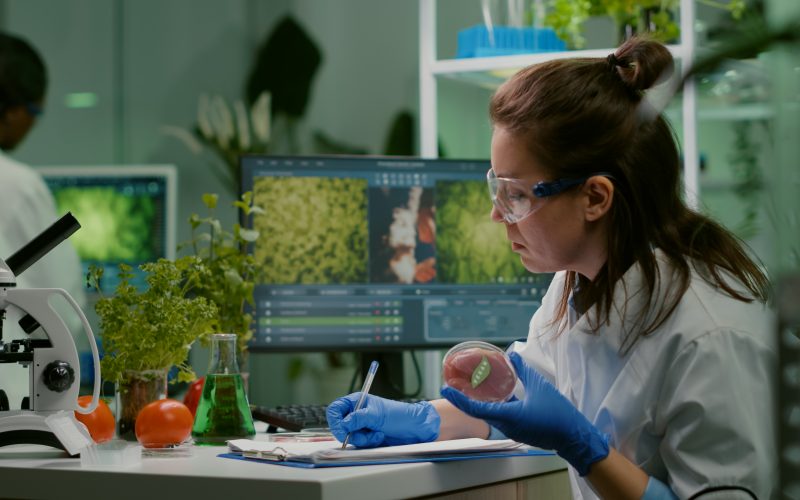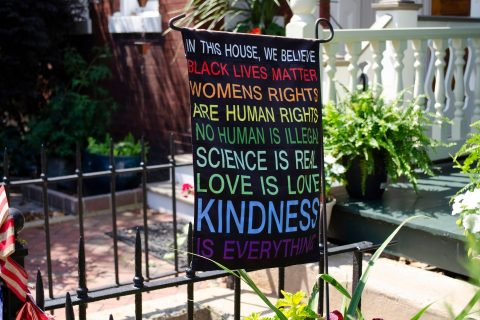Hamburgers are part of the global pollution problem, but we still eat them. Maybe we could have our burgers and clean air, too? Kenny Torrella, staff writer for Vox’s Future Perfect section, joins host Krys Boyd to discuss cultivated meat, a product grown from animal muscle and fat cells, and how it’s being blended with plant-based products in hopes of ending traditional meat production altogether. His article is “Inside the fantastical, pragmatic quest to make ‘hybrid’ meat.”
Bonus Blog: Looking for a way to help the environment? Cut out the meat
—By Cristin Espinosa, Digital Producer for Think
There are plenty of reasons why people choose to go vegetarian, vegan or simply reduce how much meat they consume. One of those reasons is the concern for climate change.
Our guest, Kenny Torrella, explains some of the ways in which meat production affects the environment and how this has led some startups to try innovative alternatives to traditional meat, like hybrid and cultivated meats.
Torella says the meat industry has a massive impact on our climate when it comes to energy. Meat production involves a significant amount of carbon emissions, which contributes to global warming.
“Beef is the most carbon-intensive food that there is,” Torrella says. “If you are worried about climate change and you want to reduce one food product, it should be beef.”
Torella also says that, when compared with meat-based proteins, plant-based alternatives have a smaller environmental impact. It’s a reason why those who are concerned about the environment may choose vegan or vegetarian diets.
“When you look at plant-based meats, they tend to have drastically smaller carbon footprints than beef or, you know, especially pork and a little better on the environmental footprint than poultry and fish, but not dramatically,” Torrella explains.
The reason plants have a smaller carbon footprint is because of the resources it takes to produce plants versus the resources needed to raise animals for food. Raising animals for meat requires food and water for the animals, as well as transportation to get those resources to them.
“You have to run them throughout the entire supply chain from slaughter to the supermarket,” says Torrella. “It’s incredibly intensive on the environment, whereas with plant-based meats, you’re directly growing crops and, rather than feeding them to farmed animals, you are just putting them into your product.”
With cultivated meat products, which are made in a lab, much of the resource-intensive production involved in traditional meat is taken out of the equation. Which doesn’t mean cultivated meat would have zero impact on the environment. Since it has yet to be widely produced, cultivated meat’s impact is uncertain.
“There have been some lifecycle analysis to look at what their environmental footprint will be,” Torella says. “Because these products haven’t been commercialized yet, they’re more theoretical… but a lot of people speculate that they’ll be much lower than, say, beef or pork or chicken.”
Listen to this episode above to learn more about how cultivated and hybrid meats are produced and what their larger impact could be on the meat industry and our planet.





